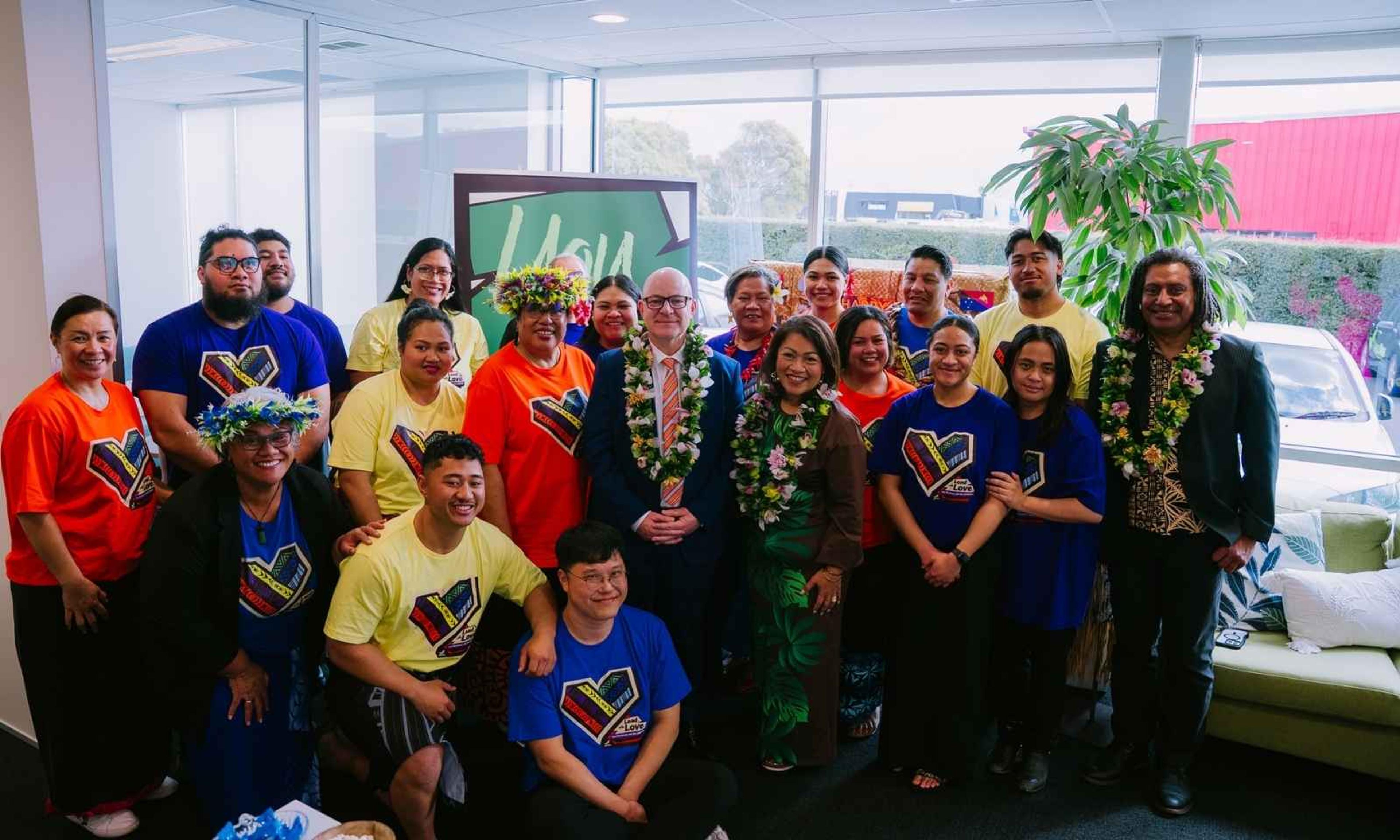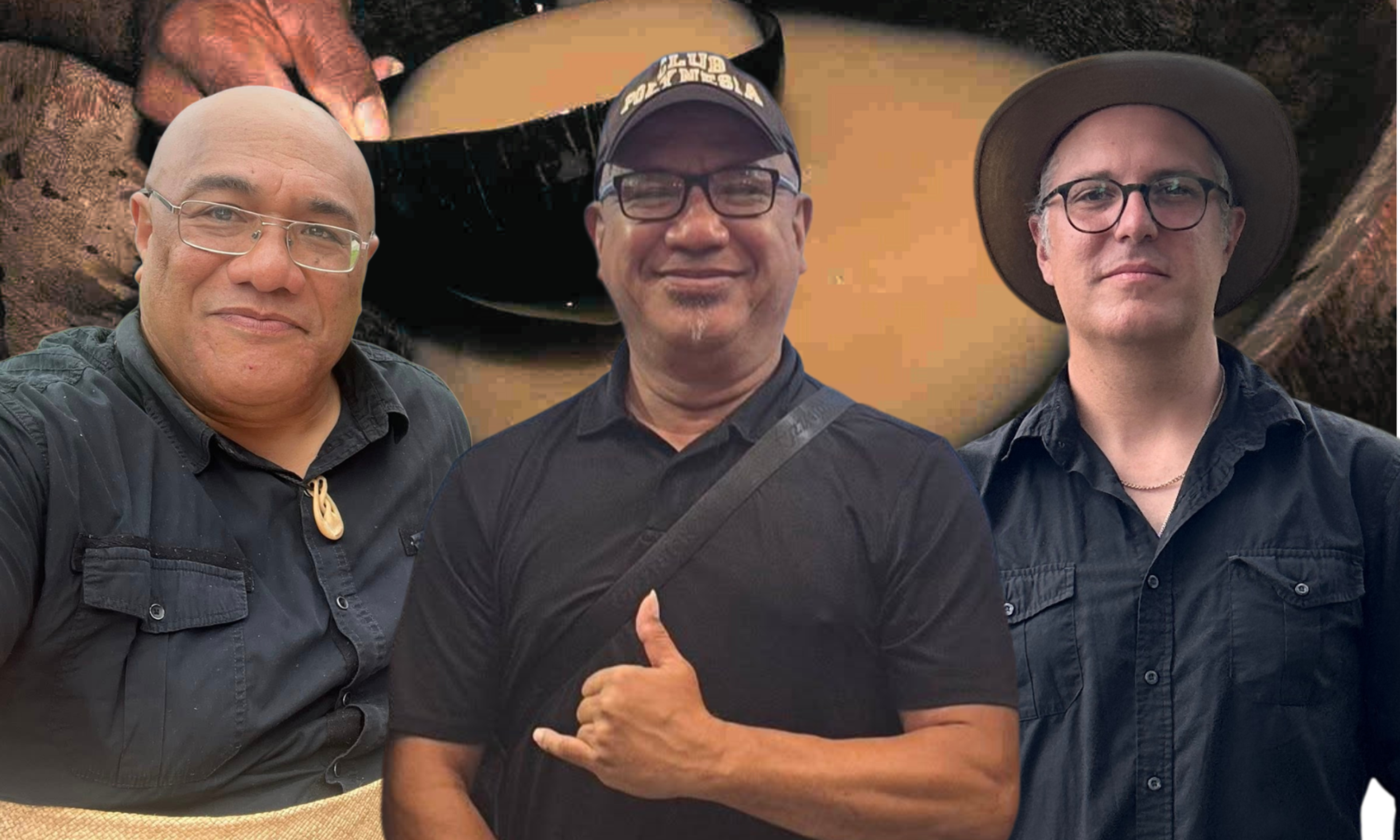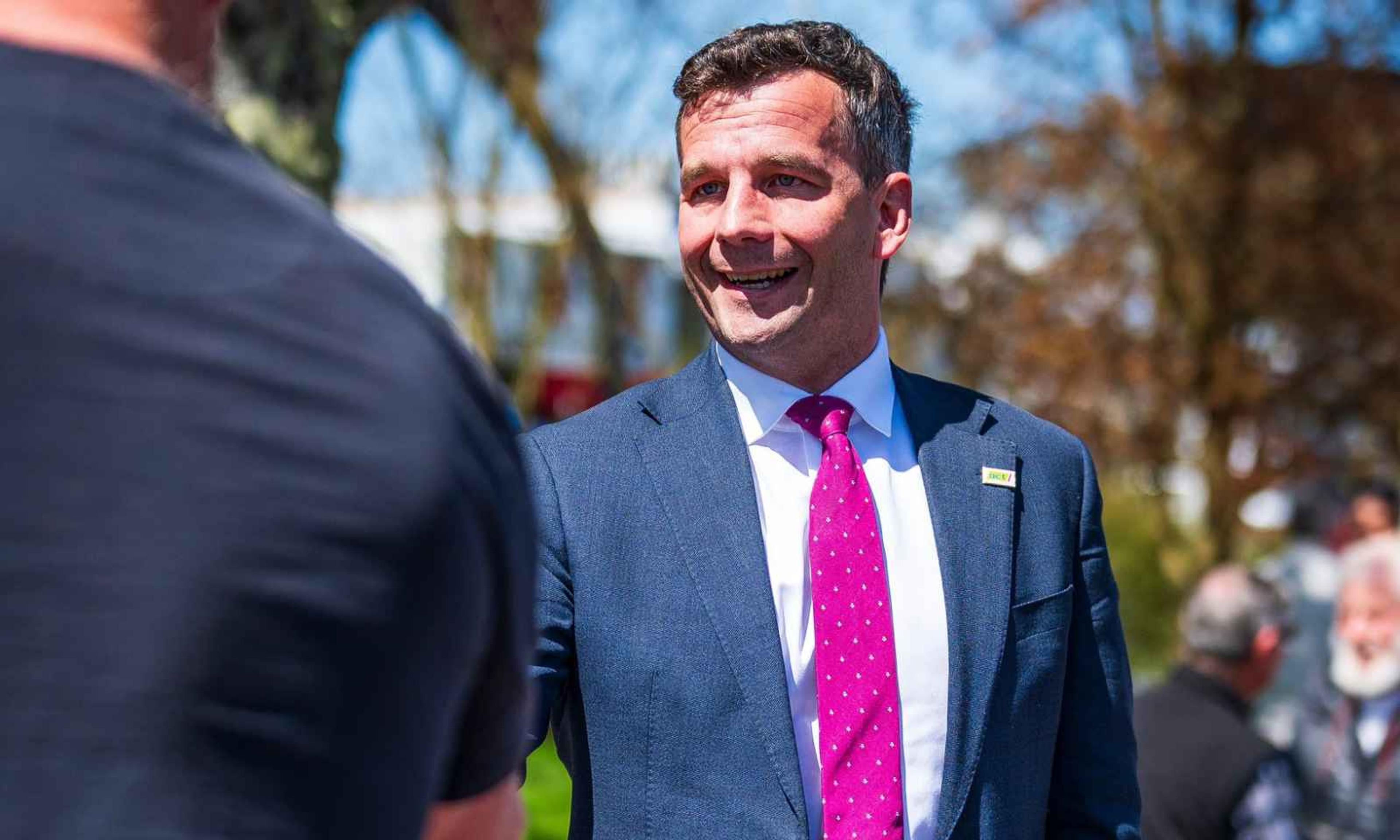

Mapu Maia and Mental Health Minister Matt Doocey launch the Lead with Love campaign in Auckland.
Photo/Mapu Maia
Pokies, stigma and silence: Gambling campaign calls families to Lead with Love
Tuala Pesio Ah-Honi of Mapu Maia says shame and judgement often push loved ones into isolation, as the new Lead With Love campaign launches.


Pacific leaders back NZ kava reforms but warn of risks for smaller businesses in Tonga

Pacific child poverty rises as Deputy PM points to economic growth as solution

Lantern Festival 2026 tickets sell out, visitors urged to plan ahead

Miss Cook Islands 2026, reflections of a Pacific Island beauty queen

Pacific leaders back NZ kava reforms but warn of risks for smaller businesses in Tonga

Pacific child poverty rises as Deputy PM points to economic growth as solution

Lantern Festival 2026 tickets sell out, visitors urged to plan ahead
A Pacific organisation warns stigma can stop Pasifika from seeking help for gambling harm, following their Lead With Love campaign launch.
The Lead With Love campaign is designed to break down stigma in Pasifika communities, where shame and fear often prevent people from seeking support.
This initiative, co-developed with Pasifika-led marketing agency Dioscuri Ltd, carries the message: “see the person, not the addiction”.
Speaking to William Terite on Pacific Mornings, Tuala Pesio Ah-Honi, the Chief Executive of Mapu Maia, says stigma pushes many people into isolation.
She explains stigma stops many people from seeking help early, with some trying to fix their addiction alone.
“They find themselves in self-loathing and deep depression,” Ah-Honi says.
“They also spiral out of control…and don’t know what to do.
“The Lead with Love campaign was born out of trying to reduce barriers for our people to seek help early.”
She says the campaign looks at Pasifika cultural values, and how alofa (love) is the foundation of those values.
“It was also built with our peer support worker who had a gambling addiction, it was built with lived experience, great knowledge and expertise, but also in withthe care and attention we provide for our Pasifika families,” Ah-Honi says.
Matt Doocey, Minister for Mental Health, formally launched the campaign this week in Auckland, saying Pacific health providers like Mapu Maia play a critical role in supporting at-risk communities.
He welcomed the Lead With Love campaign as a way to break down stigma around gambling harm.
Doocey also highlighted the Government’s refreshed Strategy to Prevent and Minimise Gambling Harm, which includes more than $81 million in targeted investment.
The plan also introduces up to 18 additional clinical internship places to grow the gambling harm workforce, with services funded through the Problem Gambling Levy paid by gaming machine operators, casinos, TAB NZ and Lotto NZ.
Pacific people are particularly vulnerable to gambling harm.
According to the Ministry of Health, Pacific people are 2.31 times more likely to be moderate or high-risk gamblers than non-Māori and non-Pacific groups.
Research shows pokie venues are concentrated in poorer neighbourhoods.
The Problem Gambling Foundation found almost 63 per cent of venues were based in communities with high levels of hardship.
Ah-Honi says these places include regions where Pacific people live, such as South Auckland, West Auckland, Porirua, Aranui and far north.
“For years and years we've used gambling activities such as bingo to raise funds for our churches, schools, and play centres,” Ah-Honi says.
“The normalisation of gambling has led to more exposure and more gambling activities in our Pasifika.
“Pokie machines… are still the highest forms of gambling that is causing harm but we have online gambling that is spiking at the moment.”

Mapu Maia Chief Executive Tuala Pesio Ah-Honi urges tougher measures to reduce online gambling harm. Photo/Composite
Mapu Maia warned last year that online casinos and sports betting bring harm into private spaces, often hidden from family or community support networks.
The Pacific Islands Families Study by Auckland University of Technology also showed online gaming in adolescence can significantly predict gambling harm by early adulthood.
For families who may suspect a loved one is struggling, Ah-Honi advises compassion is a good start.
“That tough conversation is hard and we believe when you start from the place of love, alofa, and understanding, that could ease the conversation a little bit more,” Ah-Honi says.
“Tell them that you understand, that you love them, that you care and that you want to help.
“That is one of the ways we can break the ice for the loved one.”
Mapu Maia encourages people to reach out through its free helpline on 0800 21 21 28 or via leadwithlove.nz.
Listen to Tuala Pesio Ah-Honi's full interview below.